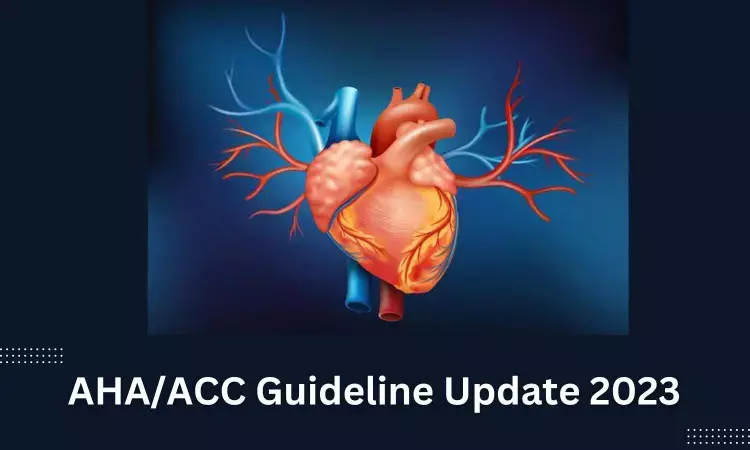- Home
- Medical news & Guidelines
- Anesthesiology
- Cardiology and CTVS
- Critical Care
- Dentistry
- Dermatology
- Diabetes and Endocrinology
- ENT
- Gastroenterology
- Medicine
- Nephrology
- Neurology
- Obstretics-Gynaecology
- Oncology
- Ophthalmology
- Orthopaedics
- Pediatrics-Neonatology
- Psychiatry
- Pulmonology
- Radiology
- Surgery
- Urology
- Laboratory Medicine
- Diet
- Nursing
- Paramedical
- Physiotherapy
- Health news
- Fact Check
- Bone Health Fact Check
- Brain Health Fact Check
- Cancer Related Fact Check
- Child Care Fact Check
- Dental and oral health fact check
- Diabetes and metabolic health fact check
- Diet and Nutrition Fact Check
- Eye and ENT Care Fact Check
- Fitness fact check
- Gut health fact check
- Heart health fact check
- Kidney health fact check
- Medical education fact check
- Men's health fact check
- Respiratory fact check
- Skin and hair care fact check
- Vaccine and Immunization fact check
- Women's health fact check
- AYUSH
- State News
- Andaman and Nicobar Islands
- Andhra Pradesh
- Arunachal Pradesh
- Assam
- Bihar
- Chandigarh
- Chattisgarh
- Dadra and Nagar Haveli
- Daman and Diu
- Delhi
- Goa
- Gujarat
- Haryana
- Himachal Pradesh
- Jammu & Kashmir
- Jharkhand
- Karnataka
- Kerala
- Ladakh
- Lakshadweep
- Madhya Pradesh
- Maharashtra
- Manipur
- Meghalaya
- Mizoram
- Nagaland
- Odisha
- Puducherry
- Punjab
- Rajasthan
- Sikkim
- Tamil Nadu
- Telangana
- Tripura
- Uttar Pradesh
- Uttrakhand
- West Bengal
- Medical Education
- Industry
AHA/ACC 2023 Guidelines Downgrade Long-term Use of Beta Blockers

The American College of Cardiology (ACC), American Heart Association (AHA), and other specialty societies have released new guidelines for managing chronic coronary disease. The new guideline recommends that long-term use of beta-blocker therapy is not recommended in every patient with chronic coronary disease.
Long-term use of beta-blocker therapy is no longer recommended to improve outcomes in patients with chronic coronary disease in the absence of myocardial infarction (MI) in the past year, left ventricular ejection fraction (LVEF) < 50%, or another primary indication for beta-blocker therapy. The guidelines also suggested calcium channel or beta-blockers as first-line antianginal therapy.
The beta blockers widely in clinical use include metoprolol tartrate, metoprolol succinate, nebivolol, bisoprolol, carvedilol, labetalol, propranolol, nadolol, timolol and sotalol.
The 2023 AHA/ACC Guideline for managing patients with Chronic Coronary Disease is published online in the latest issue of Circulation. It was developed in collaboration with and endorsed by the American College of Clinical Pharmacy(ACCP), the American Society for Preventive Cardiology (ASPC), the National Lipid Association(NLA), the Preventive Cardiovascular Nurses Association (PCNA), and the Society for Cardiovascular Angiography and Interventions.
The new guideline updates and consolidates new evidence since the 2012 and 2014 guidelines for the diagnosis and management of patients with Stable Ischemic Heart Disease (SIHD)
The updated guideline emphasized the importance of team-based, patient-centre care that considers social determinants of health and associated costs while incorporating shared decision-making in risk assessment, testing, and treatment.
Recommendations on Pharmacological Management
Regarding guidelines on pharmacological treatment, another key recommendation includes using sodium-glucose cotransporter 2 inhibitors (SGLT2-i) and glucagon-like peptide-1 receptor agonists (GLP1-RA) for selected patients with chronic coronary disease, including groups without diabetes.
The recommendation for statins as the first-line lipid-lower therapy in patients with chronic coronary disease remains unchanged. Several adjunctive therapies (e.g., ezetimibe, proprotein convertase subtilisin/kexin type 9 inhibitors, inclisiran, bempedoic acid) may be used in select populations.
The new guideline also suggested that shorter durations of dual antiplatelet therapy (DAPT) are safe and effective in many circumstances, particularly when the risk of bleeding is high and the ischemic risk is low to moderate.
Non-Pharmacological Interventions
The 2023 guideline also recommended non-pharmacological interventions for all patients with chronic coronary disease, including healthy dietary habits and exercise. Those patients who are free from contraindications are encouraged to participate in habitual physical activity, including activities to reduce sitting time and increase aerobic and resistance exercise. The updated guideline also noted cardiac rehabilitation's significant cardiovascular benefits in eligible patients, including decreased morbidity and mortality outcomes.
Other Recommendations
Routine periodic anatomic or ischemic testing without a change in clinical or functional status is not recommended for risk stratification or to guide therapeutic decision-making in patients with chronic coronary disease.
Reference: Virani SS, Newby LK, Arnold SV, Bittner V, Brewer LC, Demeter SH, Dixon DL, Fearon WF, Hess B, Johnson HM, Kazi DS, Kolte D, Kumbhani DJ, LoFaso J, Mahtta D, Mark DB, Minissian M, Navar AM, Patel AR, Piano MR, Rodriguez F, Talbot AW, Taqueti VR, Thomas RJ, van Diepen S, Wiggins B, Williams MS. 2023 AHA/ACC/ACCP/ASPC/NLA/PCNA guideline for the management of patients with chronic coronary disease: a report of the American Heart Association/American College of Cardiology Joint Committee on Clinical Practice Guidelines. Circulation. 2023;148:e9–e119. doi: 10.1161/CIR.0000000000001168
Dr Prem Aggarwal, (MD Medicine, DNB Medicine, DNB Cardiology) is a Cardiologist by profession and also the Co-founder and Chairman of Medical Dialogues. He focuses on news and perspectives about cardiology, and medicine related developments at Medical Dialogues. He can be reached out at drprem@medicaldialogues.in
Dr Kamal Kant Kohli-MBBS, DTCD- a chest specialist with more than 30 years of practice and a flair for writing clinical articles, Dr Kamal Kant Kohli joined Medical Dialogues as a Chief Editor of Medical News. Besides writing articles, as an editor, he proofreads and verifies all the medical content published on Medical Dialogues including those coming from journals, studies,medical conferences,guidelines etc. Email: drkohli@medicaldialogues.in. Contact no. 011-43720751


